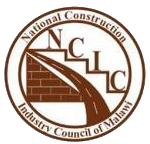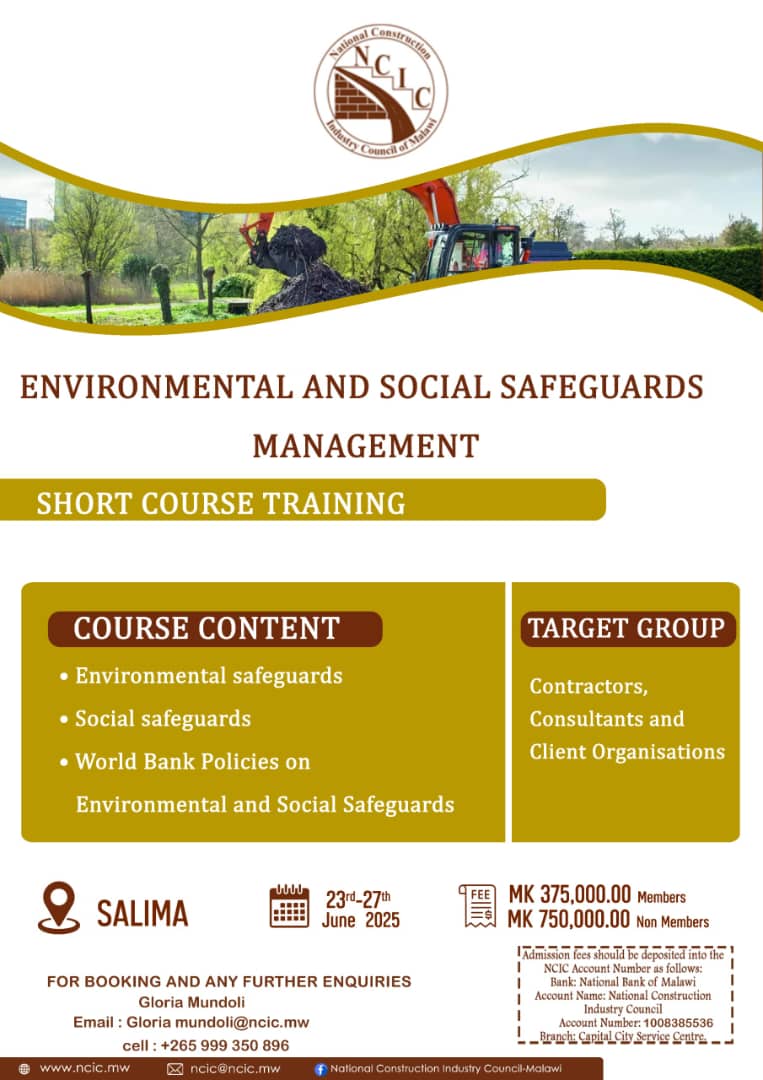Caveat on cement blocks
The population boom in our country coupled with rapid urbanization has invariably driven up demand for shelter thereby inundating property owners as well developers. This surge in demand has also indirectly led to high demand for building materials as well as labour for construction in almost equal measure. A simple market survey points to a busy value chain leading to positive social economic development evidenced by infrastructure sprouting all over the place. Some construction sector gurus have unofficially labelled Malawi a ‘construction site’ with all sorts of infrastructure being built.
The introduction of sustainable construction materials by government, back in 2018, coupled with the perceived benefits of the cement block, has led to a surge in the demand and supply of this construction material, with manufacturers of the block operating from almost every corner of our cities and towns. The benefits of the cement block are many ranging from economy, durability, heat regulation; to wind and water resistance. Sustainability of the cement block is a question which was recently raised at the Malawi Engineering Institution conference where one participant wondered if the quarry and quarry dust being used from the hills and mountains arguer well with notion of sustainability. But this is a subject of another day.
Use of sustainable construction materials, of which some mistakenly believe is ‘Ban of Burnt Bricks’, seek to promote the use of sustainable and environmentally friendly construction materials in the construction industry in Malawi. The regulations require that every public or commercial project be executed using approved, energy efficient, sustainable and environmentally friendly construction materials and technologies in all the phases of the project as appropriate. As such the use of traditionally fire cured bricks in the execution of such projects is prohibited.
The regulations also require project consultants to ensure that they design for, and specify, sustainable construction methods and materials for their clients in addition to appropriately advising the clients on the benefits, cost effectiveness and value addition of such methods and materials. The regulations further require the city, town and district councils to approve only such projects that specify and utilize construction materials that are sustainable, environmentally friendly and energy efficient.
A recent survey, jointly conducted by the National Construction Industry Council (NCIC) and the Malawi Bureau of Standards (MBS), found some serious shortfalls in the quality and strength of the cement blocks on the local market. Quality proponents for the construction industry will tell you that quality is achievable through a combination of several factors including supervision, the skills level of the contractor and the quality of the materials used. The absence of any of these elements on a construction project is a sure minus on quality and resilience of the same.
While the regulators are doing their part, a serious caveat needs to be spelt out on the use of the various construction materials including the cement blocks. Buyers need to be aware of the quality and strength of the cement block and indeed any materials that they use on their construction projects. If not sure, there is justifiable impetus to consult materials laboratories or industry regulators to, not only safeguard your investment, but also lives of users of the infrastructure products.
The recent infrastructure disaster in Turkey is sadly a product of neglect of guiding principles of the construction industry and a complete disregard of the codes of ethics. While some uphold the standards, there seem to be insatiable appetite for cost savings in many circles which lands property developers into a vicious trap. It may be worth reminding ourselves that what may seem cheap in the short term, may prove very expensive in the long term as deferred costs come back forcefully in the form loss or heavy repairs.


